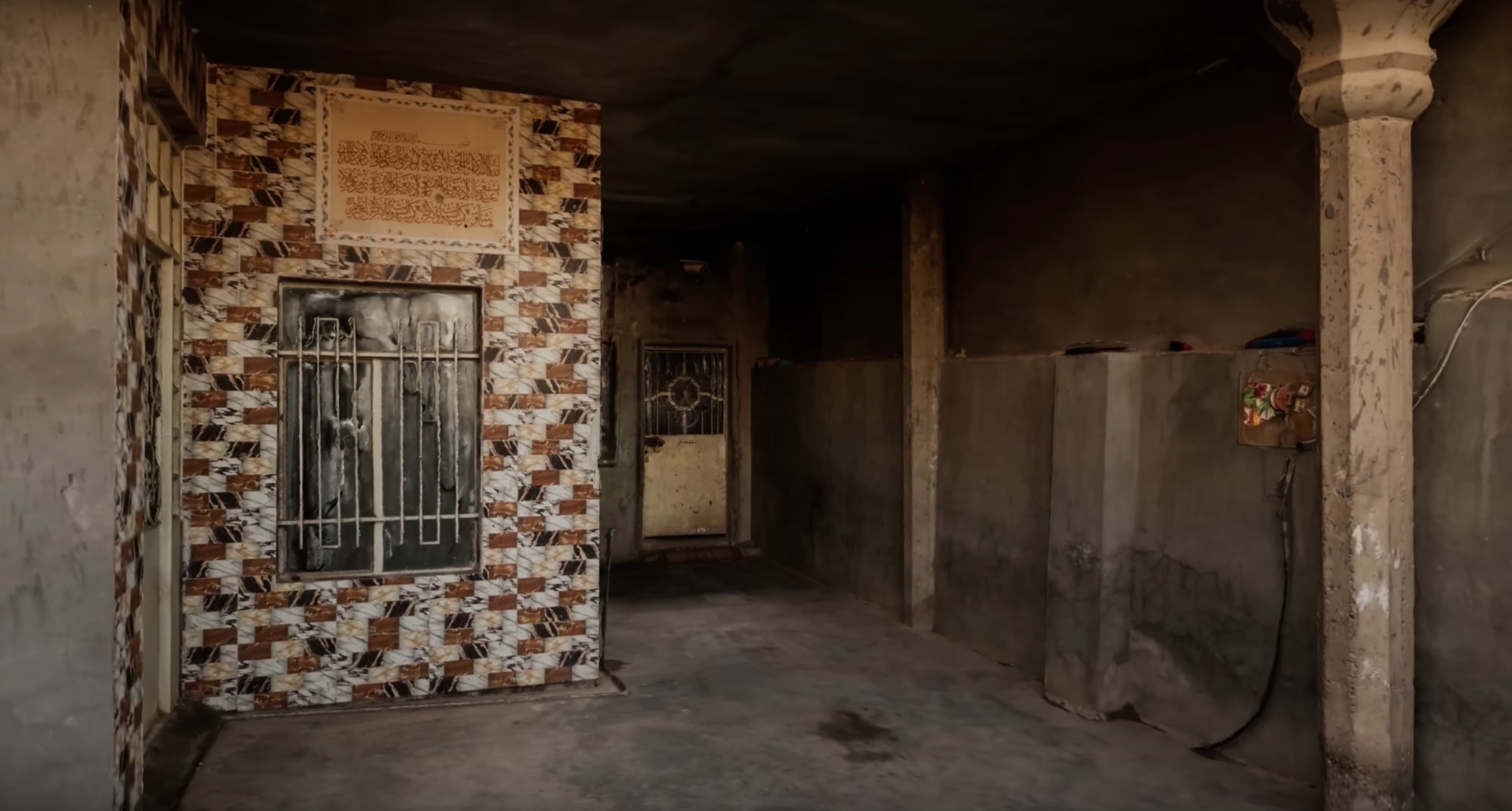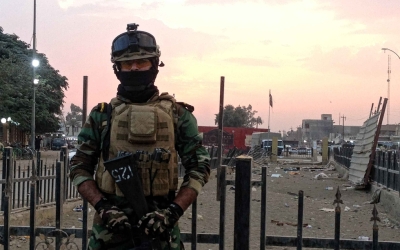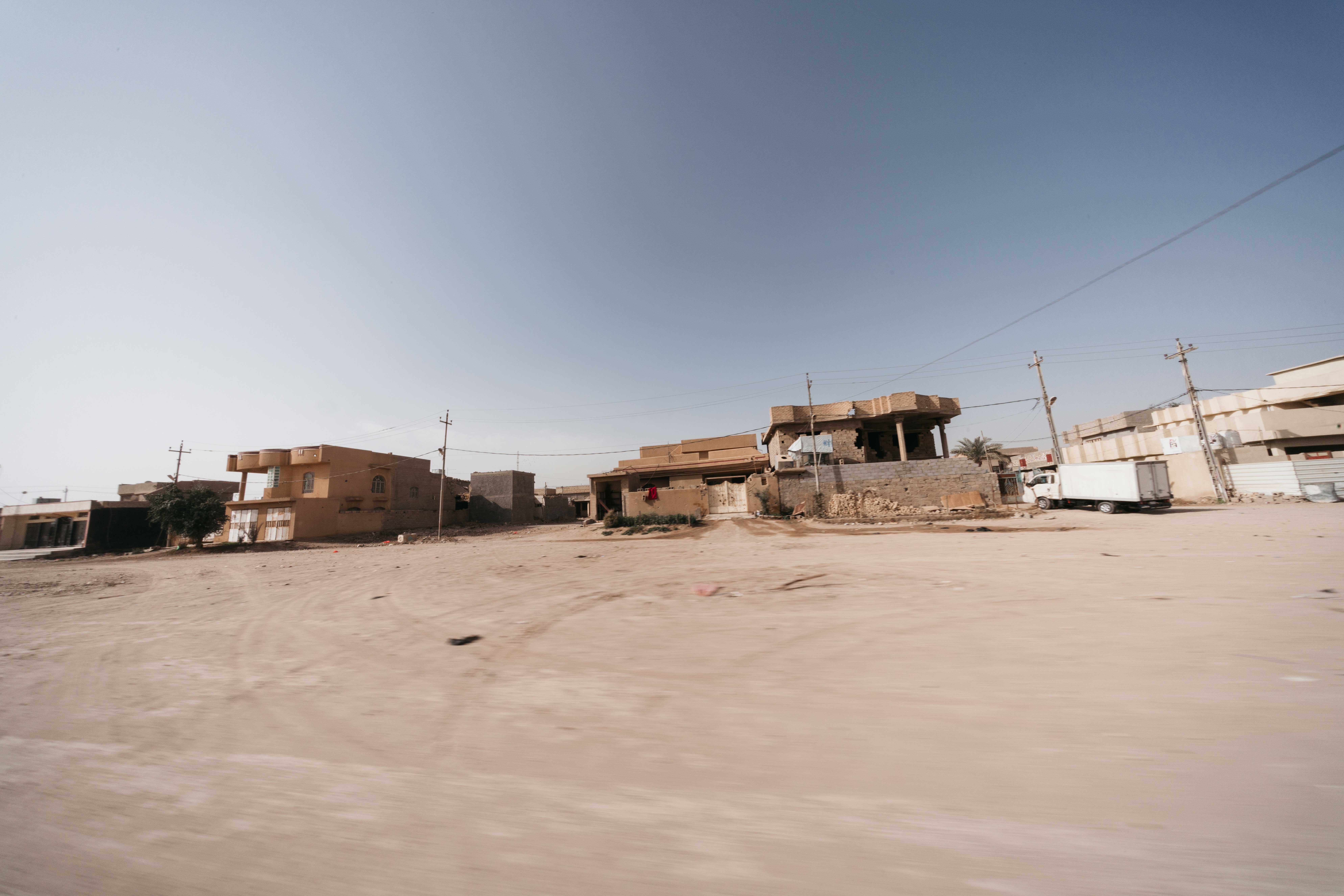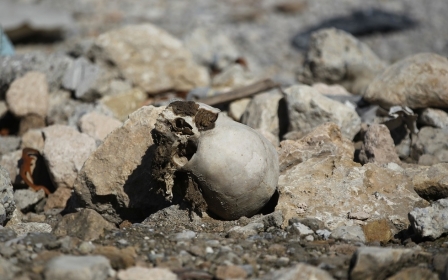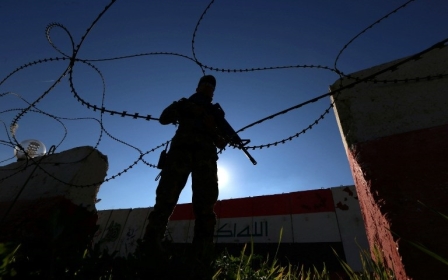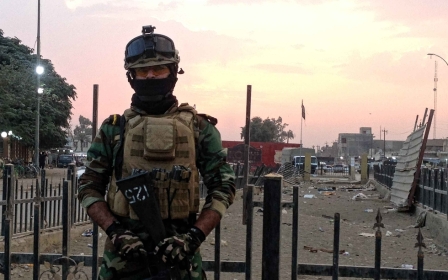House of horror: Virtual reality film depicts Islamic State devastation in Fallujah
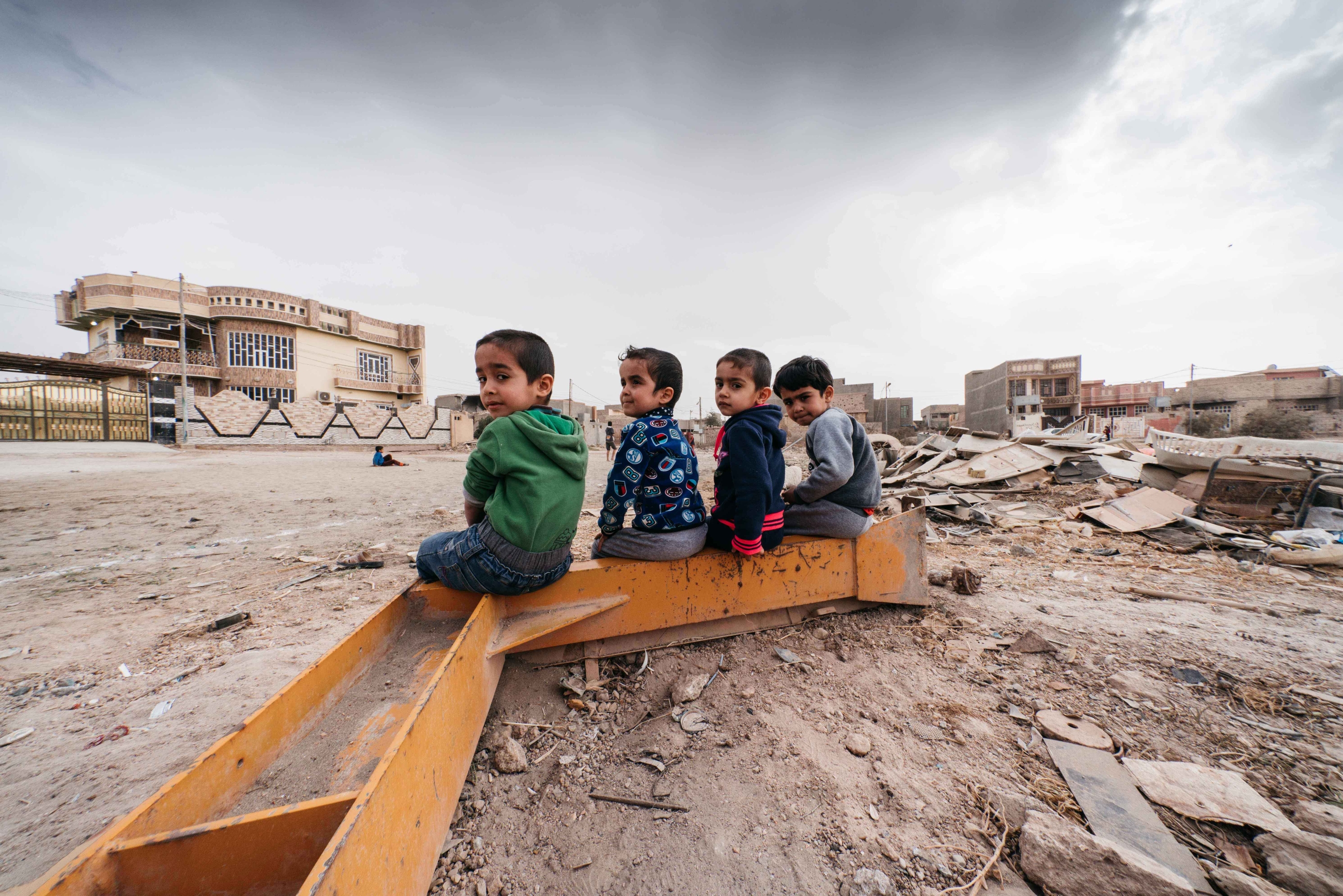
You have just returned to your home after a year of forced exile.
But instead of coming back to a place of refuge and solace, the rooms may be hiding unexploded bombs - and each step could be your last.
This was the reality for Ahmaied Hamad Khalaf, an Iraqi man who in 2017 returned to his home in Fallujah, Iraq, after fierce fighting between Islamic State (IS) fighters and the Iraqi army.
Now, through a new virtual reality (VR) documentary, people in Washington DC will have a chance to experience the terror he felt.
"If you see a bomb you would usually recognise it, but this stuff is new," Khalaf says in the film about the possibility that his home was laden with improvised explosive devices (IEDs).
"Home After War" will have its first showing in the US capital on Saturday at the Arabian Sights Film Festival.
Khalaf left his home in 2016 when the fighting intensified between IS and the Iraqi army, which was pushing to retake Fallujah.
One of the tactics used by IS fighters at the time was to plant IEDs in the vacant homes of Iraqis who had fled.
Felix Gaedtke, one of the filmmakers, said the cruel tactic was used to either target families of certain combatants, or to "plan battles ahead".
"Let's say they don't want a certain group of soldiers to take cover in some houses. So they just boobytrap the entrances to the houses so that no one can take cover there," Gaedtke, who is based in Berlin, told Middle East Eye in a telephone interview ahead of the premiere.
An interactive experience
The film was created in part by using photogrammetry, a technique in which thousands of images are captured to render a three-dimensional model of an area.
Wearing the VR headset through which the documentary is viewed, you begin the visit to Fallujah in the outdoor courtyard of Khalaf's home, a traditional two-level brick house.
From there, you are able to "walk" around the home and examine the damage caused by the fighting.
The first room you see has a patched-up hole from an explosion that happened while Khalaf was away.
Still, the house remained largely intact, with the living room, kitchen and stairway relatively undamaged.
While many homes in Khalaf's Fallujah neighbourhood contained IEDs left behind by IS fighters as they fled the city, Khalaf's home luckily did not contain any explosives.
But the lasting effects of the war are clear.
The battle to retake the city from IS took a heavy toll, and after five weeks of fighting thousands of people had been killed.
More than 80,000 residents of Fallujah are estimated to have been displaced during the battle and many parts of the city still bear the scars of war. Homes were demolished by air strikes, minarets stand half-felled by gunfire and buildings are riddled with bullet holes.
Wearing a tan jacket over his traditional thobe, Khalaf appears at several times throughout the film to explain what happened.
He describes what it feels like to have been forced to flee, and to be confronted by the memories of war upon his return to the devastated city.
On the roof, Khalaf reveals that two of his sons, Muhammad and Hisham, had been working to remove rubble from another house in the neighborhood when a bomb exploded, killing them both.
Dark clouds roll in as Khalaf begins to cry. "They were my wings," he says.
What comes next is a flash of white light and a roaring bang, followed by a high-frequency ringing: a simulated IED explosion.
"When you put on a headset you feel transported to Fallujah," says the Geneva International Centre for Humanitarian Demining (GICHD), which helped create the documentary, on its website.
No 'on-and-off switch'
Gaedtke's company, NowHere Media, partnered with the GICHD – which works to reduce the risks to communities that stem from explosive ordnance - to create the film, thanks to a grant from VR company Oculus.
While the documentary has been shown at other festivals, including the Venice Film Festival Cannes XR, and the New York Independent Film Festival, this weekend's screening will be the first time it is shown in Washington.
The Arabian Sights Film Festival's director, Shirin Ghareeb, said she chose films that give audiences "the opportunity to see a different viewpoint".
"They help break the stereotyped images of Arabs by presenting the complex reality of Arab society and [the] issues it's facing today," she told MEE.
Gaedtke said he hopes the documentary can shed light on the aftermath of conflicts, and how devastating IEDs can be for communities even years after the fighting has ended.
"War is not over when the main fighting stops," he told MEE.
"War is something that affects areas and people; it's not this on-and-off switch of a Hollywood movie that there is either heavy fighting or nothing is going on at all."
'Home After War' will be screened on 26 October at the Arabian Sights Film Festival in Washington DC.
Middle East Eye propose une couverture et une analyse indépendantes et incomparables du Moyen-Orient, de l’Afrique du Nord et d’autres régions du monde. Pour en savoir plus sur la reprise de ce contenu et les frais qui s’appliquent, veuillez remplir ce formulaire [en anglais]. Pour en savoir plus sur MEE, cliquez ici [en anglais].


